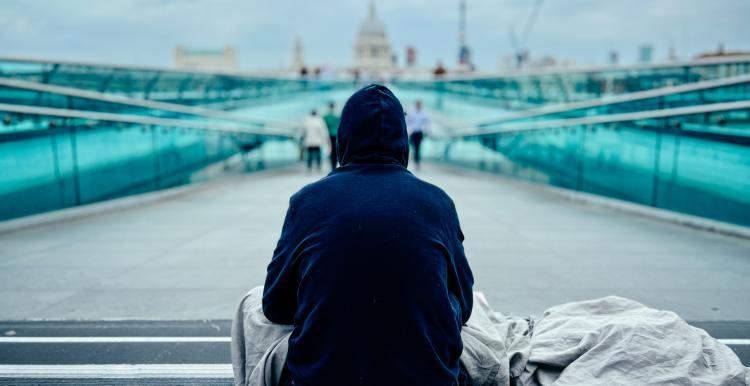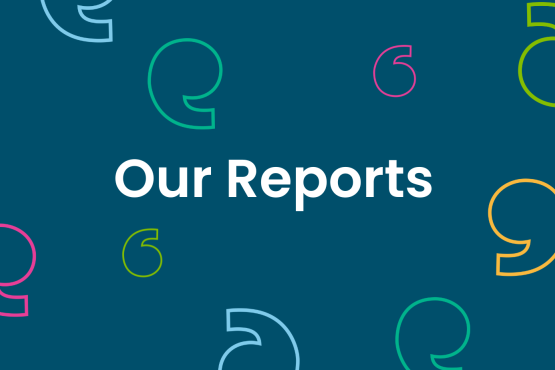What homeless people told us about their experience of health and care services

Homelessness is increasing in England.
From April – June 2023, local authorities assessed 73,660 households as homeless or at risk of homelessness, up from 72,210 for the same period in the previous year. The annual rough sleeping snapshot for 2022 found 3,069 people were sleeping rough, compared to 2,443 people in 2021.
And research for the homeless charity Crisis suggests homelessness is likely to rise significantly in the near future, driven by the cost of living increases, rising private rents and evictions, and limited social renting.
Homeless people have worse mental and physical health than the general population. In the 2021 Census, 5.3% of the population of England said their general health was bad or very bad, compared to 63% of homeless people, according to Homeless Link.
Access to GP services
Our research shows homeless people have particular problems accessing GPs and other services.
GP surgeries often insist people provide documents proving their identity and address to register as a patient – even though this isn’t a regulatory requirement. Homeless people are unlikely to have the types of documents that GP surgeries ask for. That means GP surgeries may refuse to accept them as a patient in the first place.
“Reception staff at GPs should be made aware that I do not need to have photo ID to register as a patient. I am entitled as long as I can prove I have a place to stay in the catchment area. Because I was given poor advice I went to A&E when I should not have had to. I wasted their time because the GP staff were wrong.” — Story shared by Healthwatch Sandwell
In December 2022, mystery shopping of GP websites by Healthwatch Sheffield found over three in five stated that people would need proof of ID and address to register. And out of 74 websites they looked at, just one had clear information about people’s rights to register and stated they were committed to providing care for homeless people.
Other barriers to accessing services
We heard about homeless people experiencing serious problems accessing NHS dentistry. Research by the homelessness charity Groundswell found that the oral health of their research participants was very poor, and significantly worse than the general population.
Research by Healthwatch Dorset shows some of the additional problems homeless people have with accessing NHS dentistry:
“The challenges faced by people who are homeless often prevent them from being able to access mainstream dental services. No fixed address, no mobile phone, no money, limited mobility, as well as lack of service provision in the Bournemouth area, means that many people sleeping rough or in temporary emergency accommodation have not seen a dentist for many years.”
The cost of a mobile phone handset, data and transport are barriers to homeless people accessing all healthcare services. Research by People Know How found that while the majority of homeless people had mobile phones, they couldn’t rely on them – phones depend on battery power and there’s a risk they’ll be broken or stolen.
Homeless people may also not be able to afford a mobile phone contract, so depend on pay-as-you-go access to calls and the internet.
As a result, they struggle to make an appointment or receive information about their healthcare:
“I don't have a phone, smart phone or access to IT and making an appointment is not always easy.” — Story shared with Healthwatch Derby
Some services are too far away to be accessible for homeless people. If they can’t afford the bus fare, they have to walk. Some do without access due to the cost of getting there.
For example, research by Sheffield Foyer in partnership with Healthwatch Sheffield found homeless young people living in the Foyer didn’t take up sexual health screening, as they couldn’t afford to get to the sexual health clinic in the city centre.
Similarly, research by Healthwatch East Sussex with homeless people living in temporary accommodation in Eastbourne found that people didn’t take up services that weren’t within walking distance, such as Covid vaccine clinics.
The importance of respect and being listened to
We heard that homeless people often felt judged by healthcare professionals and not well cared for. They felt that healthcare staff don’t respect them because they are homeless. As a result, they felt disinclined to seek help with their health problems.
“I have prostate problems and am in a lot of pain, my GP made me feel like I didn't matter and I wasn't getting the treatment that I needed. I have now changed GPs and they are excellent.” — Story shared by Healthwatch Lancashire
Engagement by Healthwatch Liverpool with staff of the local Homeless Access Clinic found that one of the reasons homeless people valued the service was the empathy and understanding shown by the staff.
“How they help the homeless, they care and they listen” — Story shared by Healthwatch Liverpool
Finding solutions
These problems are not new. We wrote about them in 2017 and in 2018. And according to the most recent audit carried out by the national Homeless Link charity, physical and mental health needs have increased among homeless people. In particular, more than 80% of homeless people reported mental health problems in 2022, up from 45% during the first audit covering 2012-14.
On primary care, all GP practices should sign up for the NHS Register with a GP Surgery Service. This makes registering with a surgery easier for patients, particularly those with no fixed address or ID. Right now, the service is being used by one in three practices in England, with more than nine in ten patients happy with the service.
The Homelessness Reduction Act 2017 introduced a Duty to Refer, placing a duty on various public bodies (including NHS organisations) to refer service users who they identify as at risk of or experiencing homelessness to the relevant local authority. We contributed to a report by Pathway, which recommends measures to improve the efficacy of the duty.
On dentistry, Integrated Care Systems should look to improve access for the homeless. West Yorkshire ICB, for example, have proactively planned a £6.5m investment in dental care, including £4.5m from projected under-delivery on the NHS contract. This includes investment into schemes that include targeted access for homeless people.
The needs of this group are complex and diverse, and call for a dynamic response from providers and commissioners. Current guidance says that people shouldn’t be denied access to primary care due to lack of ID, home address, mobile phone or internet access, and plans to support homeless people should reinforce this.
Integrated care partnerships have the chance to make that dynamic response a reality. They bring together the NHS, councils with their statutory housing and homelessness responsibilities as well as their public health remit to arrange drug and alcohol addiction services, and charity and voluntary sector organisations supporting vulnerable people.
This creates the chance to build integrated strategies to meet the needs of homeless people.


